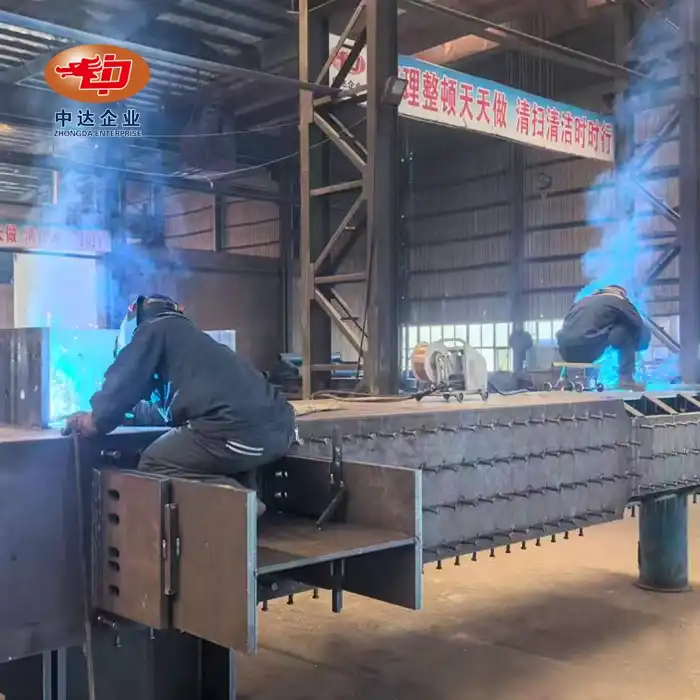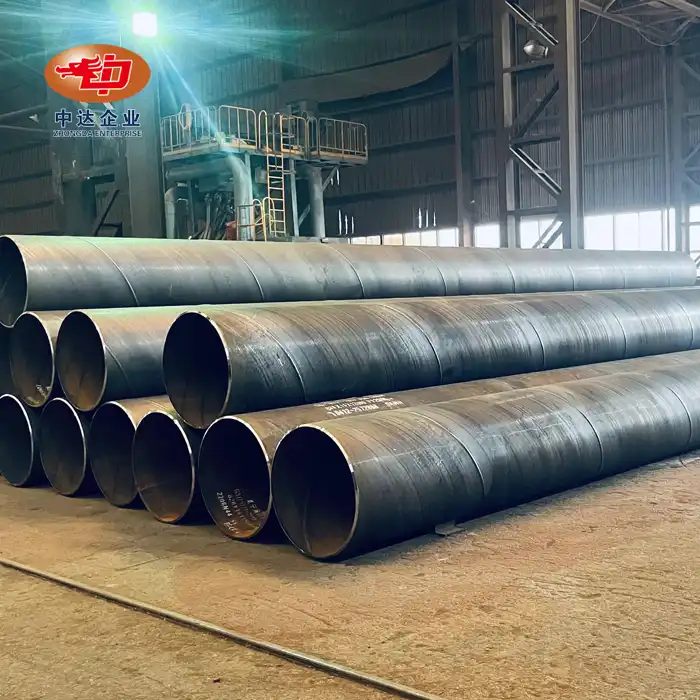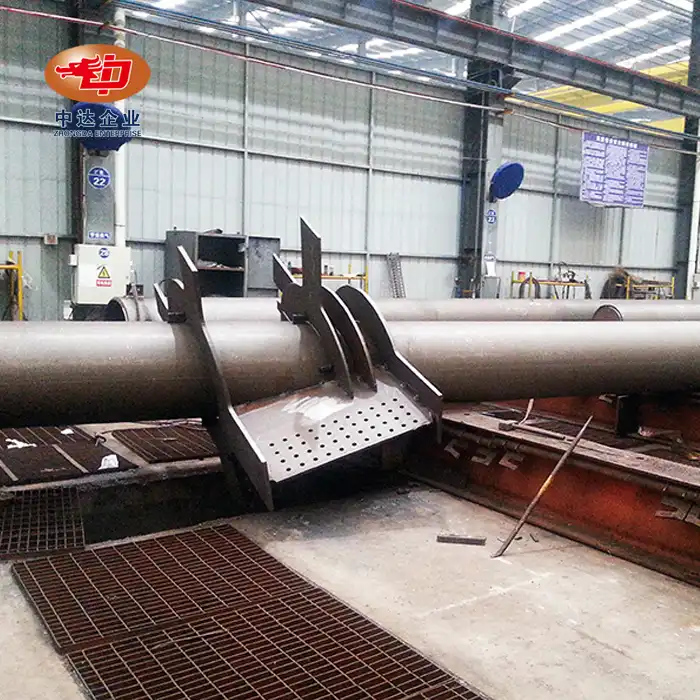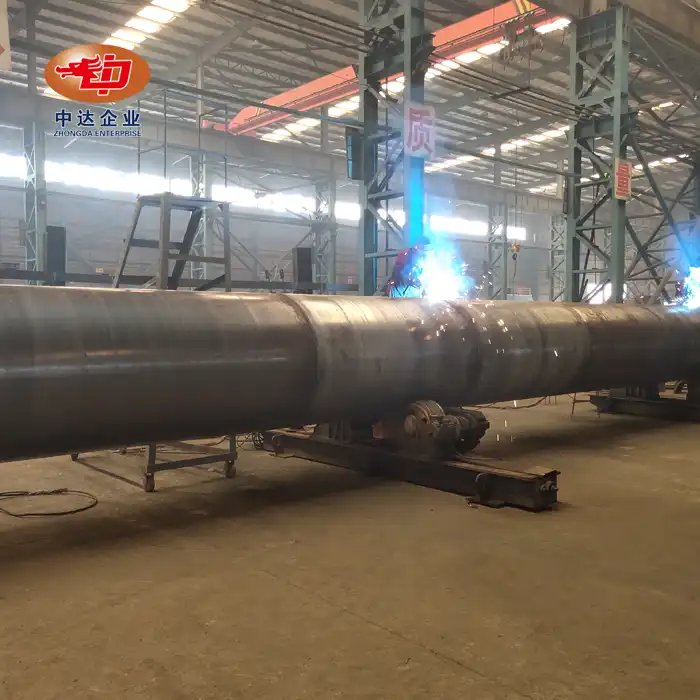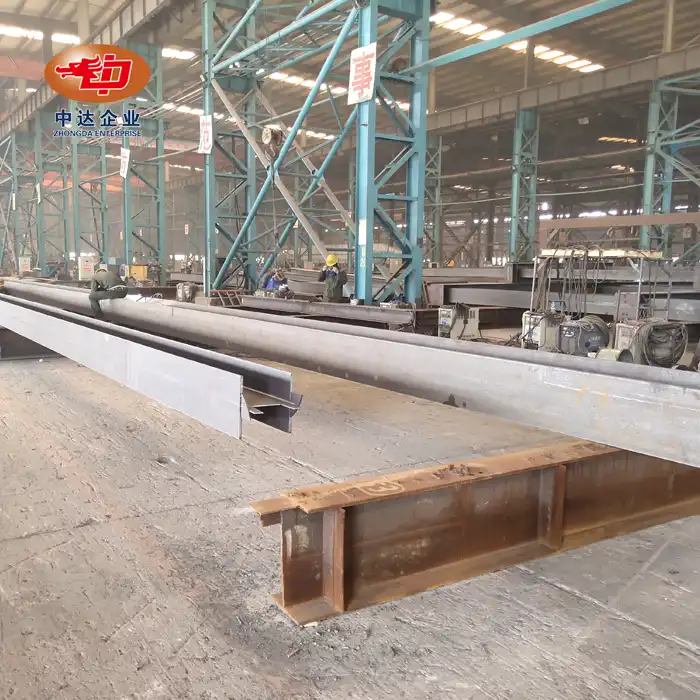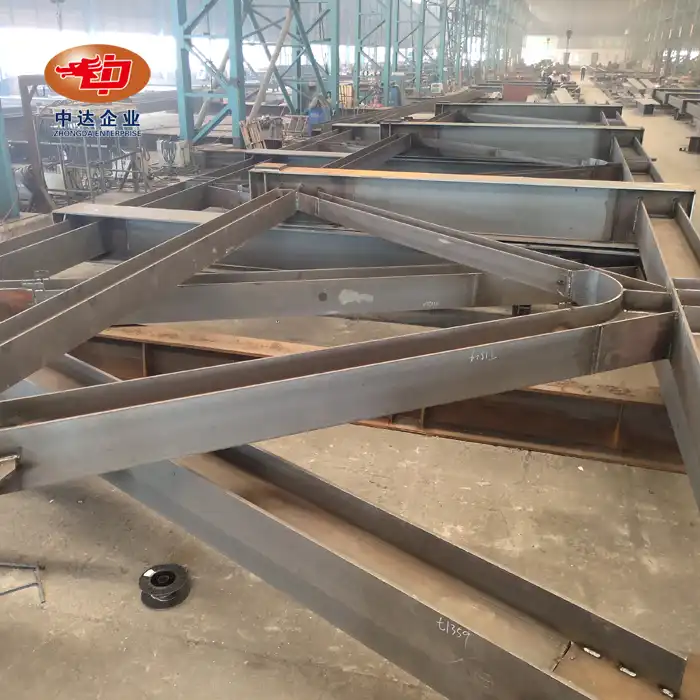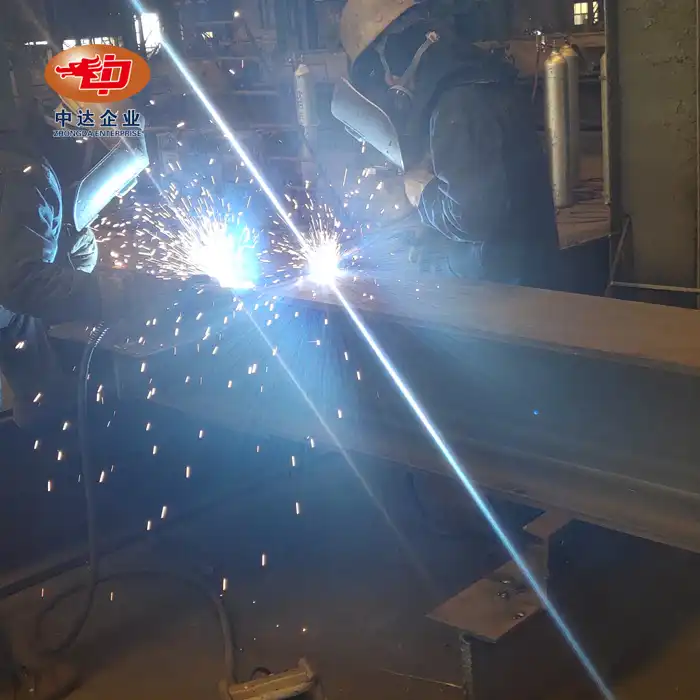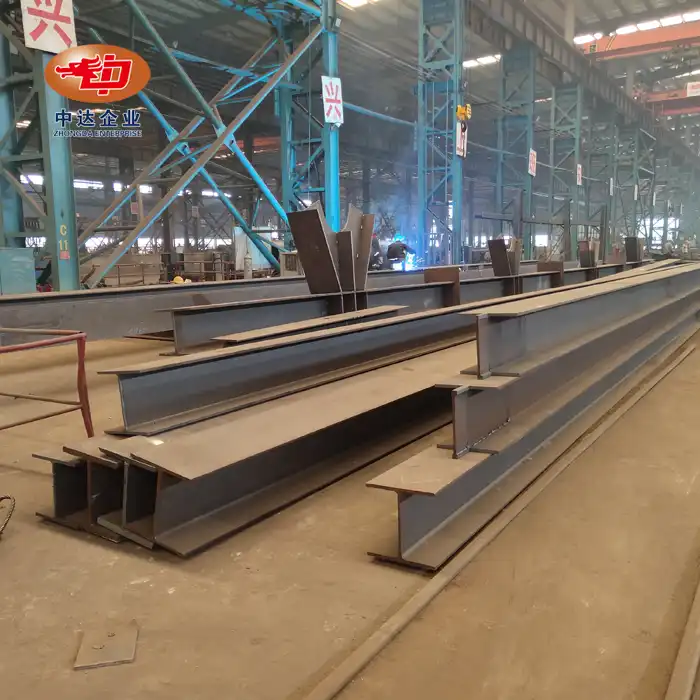Innovative Features of Modern Steel Warehouses
Advanced Structural Design
Modern steel warehouses are marvels of engineering, incorporating sophisticated structural designs that maximize space utilization while ensuring durability. These designs often feature clear-span interiors, eliminating the need for internal support columns and providing unobstructed floor space. This flexibility allows for efficient arrangement of storage systems, easy maneuverability of equipment, and adaptable layouts to accommodate changing business needs.
Moreover, the use of high-strength steel alloys enables the construction of taller warehouses with increased vertical storage capacity. This vertical expansion not only optimizes land use but also reduces the overall footprint of the facility, potentially lowering real estate costs and environmental impact.
Smart Storage Solutions
The integration of smart storage solutions is a game-changer in modern warehouse design. Automated storage and retrieval systems (AS/RS) can be seamlessly incorporated into steel structures, allowing for high-density storage and rapid inventory management. These systems, coupled with advanced warehouse management software, significantly reduce picking times, minimize errors, and improve overall inventory accuracy.
Furthermore, the implementation of mezzanine floors and multi-tier racking systems within steel warehouses maximizes cubic space utilization. This approach can effectively double or triple the usable floor area without expanding the building's footprint, leading to substantial cost savings and improved operational efficiency.

Energy-Efficient Features
Contemporary steel warehouse designs prioritize energy efficiency, incorporating features that reduce operational costs and environmental impact. Large skylights and translucent wall panels harness natural daylight, reducing the need for artificial lighting during daytime hours. Additionally, the integration of LED lighting systems with motion sensors ensures energy is consumed only when and where it's needed.
Advanced insulation techniques, such as the use of sandwich panels with high-performance insulating cores, maintain stable internal temperatures. This is particularly crucial for temperature-sensitive goods and reduces the load on HVAC systems, leading to significant energy savings. Some warehouses even incorporate renewable energy sources like solar panels on their expansive roofs, further reducing operational costs and carbon footprint.
Customization Options for Enhanced Productivity
Tailored Loading Dock Systems
Custom steel warehouses offer the flexibility to design loading dock systems that perfectly match operational requirements. This can include varying dock heights to accommodate different truck sizes, specialized levelers for smooth transitions, and automated door systems for rapid loading and unloading. The strategic placement and number of loading bays can be optimized based on traffic flow analysis, minimizing congestion and maximizing throughput.
Advanced dock management systems can be integrated into the warehouse design, providing real-time visibility of dock status, scheduling capabilities, and performance metrics. This level of customization and integration significantly reduces turnaround times and improves overall logistics efficiency.
Specialized Storage Areas
Modern steel warehouses can be designed with specialized storage areas to cater to specific product requirements. This might include temperature-controlled zones for perishable goods, high-security areas for valuable items, or hazardous material storage compliant with regulatory standards. The flexibility of steel construction allows for easy integration of these specialized areas within the main warehouse structure.
For industries with unique storage needs, such as automotive or pharmaceutical sectors, custom racking systems and material handling equipment can be seamlessly incorporated into the warehouse design. This tailored approach ensures that every square foot of the warehouse is optimized for its intended use, boosting overall operational efficiency.

Integrated Office and Support Spaces
Efficiency in warehouse operations extends beyond the storage and handling of goods. Custom steel warehouse designs can incorporate well-planned office spaces, meeting rooms, and employee amenities directly into the structure. This integration fosters better communication between office staff and warehouse operations, leading to improved coordination and faster decision-making.
The inclusion of mezzanine levels for offices or value-added services areas maximizes the use of vertical space while providing a clear view of warehouse operations. This design approach not only optimizes space utilization but also promotes a more cohesive work environment, enhancing overall productivity and employee satisfaction.
Future-Proofing with Adaptable Designs
Scalability and Expansion Options
One of the key advantages of custom steel warehouse designs is their inherent scalability. The modular nature of steel construction allows for easy expansion or reconfiguration as business needs evolve. This could involve adding new bays, increasing building height, or even relocating entire sections of the warehouse. By incorporating expansion joints and planning for future growth in the initial design, businesses can ensure their warehouse infrastructure can keep pace with their success.
Moreover, the ability to easily modify internal layouts without compromising structural integrity provides unparalleled flexibility. This adaptability is crucial in today's rapidly changing business environment, where the ability to quickly adjust to new market demands or technological advancements can be a significant competitive advantage.
Integration of Emerging Technologies
Future-proof warehouse designs consider the integration of emerging technologies from the outset. This includes provisions for IoT sensors, automated guided vehicles (AGVs), and robotic picking systems. The structural design can incorporate reinforced flooring for heavy robotic equipment, dedicated power supplies for charging stations, and the necessary IT infrastructure to support these advanced systems.
Additionally, the incorporation of data centers or edge computing facilities within the warehouse structure can support real-time data processing and decision-making. This integration of technology infrastructure not only enhances current operations but also paves the way for future advancements in warehouse automation and artificial intelligence.
Sustainability and Green Building Features
As environmental concerns continue to shape business practices, custom steel warehouse designs are incorporating more sustainable and green building features. This includes the use of recycled steel, which not only reduces the environmental impact but also often comes with cost benefits. The integration of green roofs or solar panels can further enhance the warehouse's sustainability profile.
Advanced water management systems, including rainwater harvesting and greywater recycling, can be seamlessly integrated into the warehouse design. These features not only reduce the environmental footprint but can also lead to significant cost savings over time. By future-proofing warehouses with these sustainable features, businesses can stay ahead of evolving environmental regulations and meet the growing demand for eco-friendly operations.
Conclusion
Custom steel warehouse designs are revolutionizing the logistics and storage industry by offering unparalleled efficiency, flexibility, and future-readiness. From advanced structural designs and smart storage solutions to tailored loading systems and integrated technologies, these modern warehouses are engineered to boost productivity and adapt to evolving business needs. By partnering with industry leaders like Zhongda Steel, businesses can leverage cutting-edge steel solutions and expertise to create warehouses that not only meet current demands but are also poised for future growth and innovation.
Contact Us
Ready to transform your warehouse operations with a custom steel design that boosts efficiency? Contact Zhongda Steel today at Ava@zd-steels.com. With our expertise in BIM-driven prefabrication, ultra-precise steel cutting, and innovative anti-corrosion technologies, we can help you create a state-of-the-art steel warehouse that drives your business forward. Let's build the future of logistics together!











